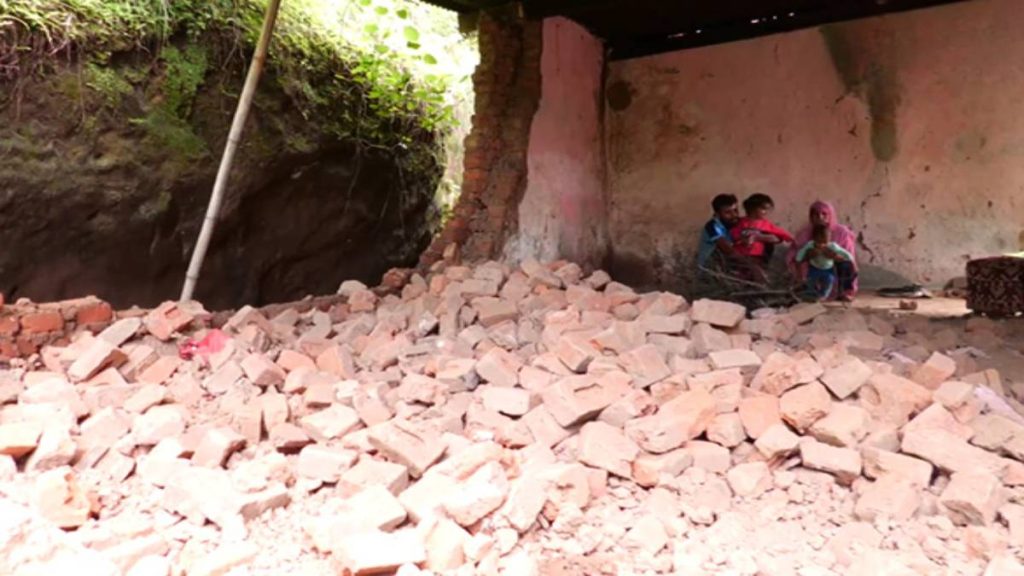Torrential rainfall in Jammu and Kashmir’s Udhampur district has caused severe destruction in Trilla Village, where multiple houses have collapsed, leaving several families homeless and in urgent need of assistance.
Sharda Devi, a local resident, recounted the moment her home gave way: “Our house has completely collapsed. Now, where will we keep our children? Even the place where we kept our belongings has cracks. First, one wall fell, then another.”
Her son, Pawan Kumar, appealed for immediate government aid. “My house collapsed due to heavy rain. We need shelter. The government must provide us with accommodation or, at the very least, arrange tents,” he said, adding that three to four other houses in the village also collapsed due to the relentless downpour.
Meanwhile, in Ramban district, authorities opened all spillway gates of the Baglihar Hydroelectric Power Project to manage rising water levels in the Chenab River caused by the continuous rainfall.
Additional Deputy Commissioner Varunjeet Singh Charak confirmed the advisory issued to the public: “People must stay away from the riverbanks. This is a necessary precaution to avoid any mishaps.”
The Additional District Magistrate of Ramban has directed police, revenue, and disaster response teams to stay on high alert. Local authorities have also been tasked with warning residents to keep themselves, livestock, and vehicles away from rivers and tributaries.
According to NHPC officials, the rising Chenab water levels prompted the precautionary release from the Baglihar Dam.
The Meteorological Centre in Srinagar has issued a weather advisory, forecasting the risk of flash floods, landslides, and shooting stones from August 1 to 6, especially in vulnerable zones of the Jammu Division. While the first few days of August may see hot and humid conditions with isolated rainfall, heavier rains are expected to return between August 4 and 6, particularly during late-night and early morning hours.
